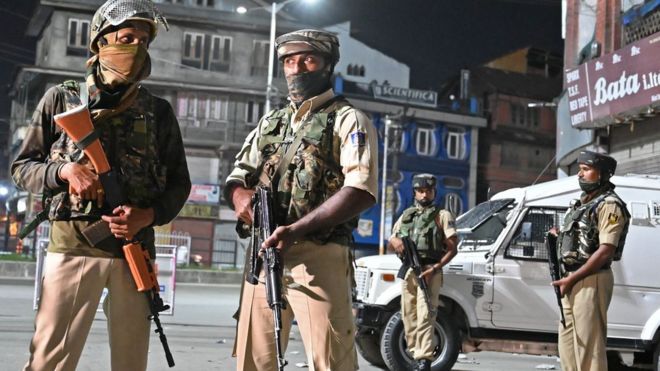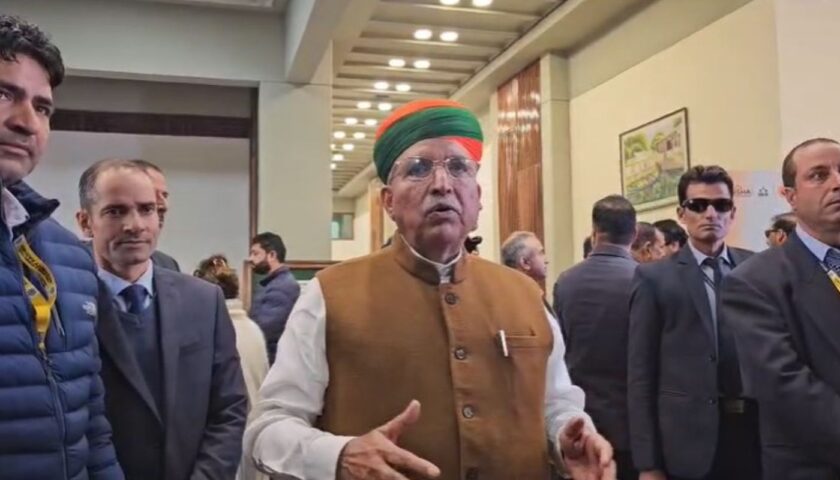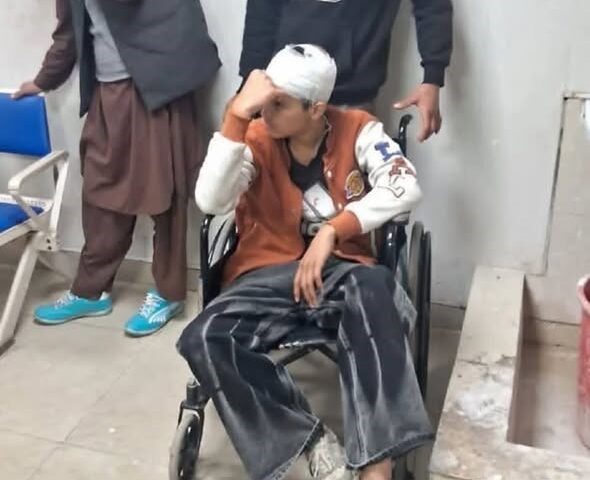Mobile internet services have either been suspended or their speed reduced in parts of Srinagar’s old city and south Kashmir districts where the attacks were reported
Security has been enhanced and searches have been intensified across Kashmir, especially in Srinagar, following a series of targeted killings that left 11 civilians dead this month, officials familiar with the developments said.
Mobile internet services have either been suspended or their speed reduced in parts of Srinagar’s old city and south Kashmir districts where the attacks were reported.
Multiple security review meetings have been held and the number of security forces deployed around key installations, such as the secretariat and the airport, have been increased in the wake of the attacks, the officials cited above said.
“These types of attacks obviously attract a greater security response. We have intensified the measures in type and number wherever we thought necessary,” one of the officials said on condition of anonymity.
Multiple checkpoints and roadblocks have been erected across Srinagar. “The security is very stringent and the searches have been intensified. Police and CRPF (Central Reserve Police Force) parties have been patrolling in larger numbers… vehicles are also being searched,” Bilal Ahmad, a Srinagar resident, said.
Besides, the number of bulletproof mobile bunker vehicles deployed at sensitive places has also been increased and the high-tech CCTV surveillance enhanced. Women paramilitary forces have been deployed in Srinagar’s Lal Chowk to assist with the searches.
“There has been an uneasy silence ever since the attacks took place. Fewer people prefer to move out fearing the deterioration of the situation,” another resident said, preferring not to be named.
Hundreds of people have been detained and questioned as part of the probe into the civilian killings so far.
The counter-insurgency operations by forces have also been intensified. Last week, police claimed to have killed 13 terrorists in the region.
Union home minister Amit Shah, who chaired a meeting with state police and chiefs of Central Armed Police Forces on Monday to discuss various security issues, is likely to visit Kashmir in the last week of October to review the situation and also inaugurate developmental projects.
People familiar with the matter said that the National Investigation Agency (NIA) is likely to take over the probe into the wave of violence, with The Resistance Front (TRF) and other Pakistan-based outfits emerging as the main perpetrators.
Terrorists have killed 11 civilians, including five non-local labourers, this month, and multiple gunfights have broken out during operations by security forces to find those responsible for the attacks.
“These types of attacks obviously attract a greater security response. We have intensified the measures in type and number wherever we thought necessary,” a security official said, asking not to be named.
Of the 11 killings, seven happened in Srinagar.
Indian Army chief General MM Naravane visited forward areas along the Line of Control (LoC) in Jammu and was briefed on the ground situation in the region and ongoing counter-infiltration operations. The Indian Army has so far lost nine soldiers since the counter-insurgency operations began on October 11 in the region – the highest casualties the army has suffered in a week in recent years.
One such operation in the forest belt of Jammu & Kashmir’s twin border districts of Poonch and Rajouri entered the ninth day, even as local police made public announcements in some areas, advising locals to stay indoors for their safety.
Following the attacks, the latest on Sunday, security has been stepped up around government offices, including the civil secretariat. Multiple checkpoints and roadblocks have also been installed across Srinagar.
“The security is very stringent and searches have intensified. Police and CRPF parties have been patrolling in larger numbers. There are also sudden spot and flash searches of vehicles,” Bilal Ahmad, a resident in the Old City, said.
The forces have also increased mobile bunkers in sensitive areas and deployed women paramilitary personnel.
The high-security presence, however, has added to the unease in the area.
“The attacks have suddenly changed the atmosphere in the city. There is an uneasy silence. Fewer people prefer to move out fearing the deterioration of the situation,” a person in Srinagar said.
In Jammu, security in and around the railway stations and bus stand was beefed up as a precautionary measure, officials said.
Migrant workers, with their entire families, were seen waiting outside the railway station in Jammu on Tuesday without the basic facilities of water and shelter. “There is grave fear and terror after the killings of labourers. This has never happened in the past. So we fled the Valley to save our lives and also our children,” Santosh Kumar of Bihar’s Sitamarhi district said.
A brick kiln worker in the Rajpora area of Pulwama district, Kumar said most of those fleeing are scared as there is no guarantee of their security.
The Jammu & Kashmir labour department says approximately 140,000 migrant workers come to Jammu and Kashmir each year in early March for skilled and unskilled jobs such as masonry, carpentry, welding, and farming, and most return once winter sets in, only to return next year. Others say the number is easily three times that.
In Poonch, the people were alerted through public address systems of local mosques and asked to not venture into forest areas.
The forest area of Mendhar in the district is under tight security cordon, officials said, with terrorists believed to be hiding there since August. Security forces are preparing a final assault to neutralise the terrorists, they added.
Since the violence broke out on October 2, police have detained and interrogated hundreds of people.
Suspected terrorist sympathisers and members of banned outfits, including the Jamaat-e-Islami, have also been questioned to ascertain their roles in the murders.
Eight suspects, including a mother-son duo, were also detained in Bhatta Durrian for allegedly providing logistic support to the terrorists, officials said. It is yet to be ascertained whether the support was given voluntarily or under duress, the officials said.
Union home minister Amit Shah is likely to visit the Union territory in the last week of October to review the security situation and also inaugurate some developmental projects.
“General MM Naravane COAS visited forward areas of White Knight Corps and undertook a first-hand assessment of the situation along the Line of Control. COAS was briefed by commanders on the ground about the present situation & ongoing counter-infiltration operations,” ADGPI Indian Army wrote on its Twitter handle.
“He was also briefed about the ongoing counter-terror operations in Nar Khas and Chamrer forests by the army commanders,” said an army officer. There was an intermittent exchange of fire between the Army and terrorists in Nar Khas forest area of Poonch on Tuesday.




